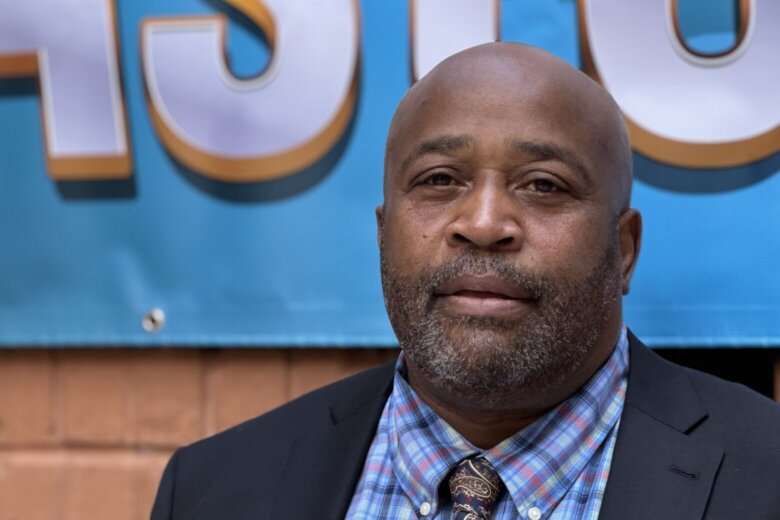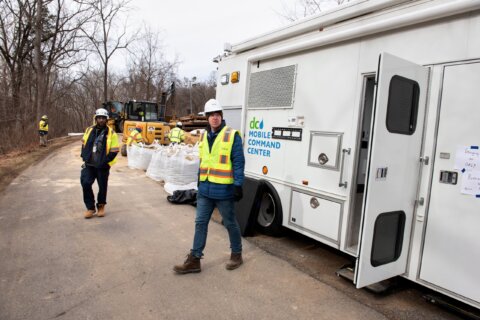
As the weather turns sharply colder, it’s not hard for Wesley Thomas to recall his decades living in D.C. without a place to call home. Thomas was homeless for 29 years before finding stable, long-term housing.
Now, Thomas wears a business suit and a number of hats.
Thomas is a guest advisory board member at Miriam’s Kitchen, an organization dedicated to ending chronic homelessness. But that’s not all he does.
“I originally started with the speaker’s bureau then,” Thomas said, adding that he became “a homeless advocate. I also do outreach, street outreach.”
Thomas also serves on the Community Advisory Team or “CAT,” at the Aston, the newest addition to D.C.’s temporary housing facilities.
Earlier this week, Thomas spoke at the opening of the Aston, a former college dormitory near the George Washington University campus. Days before Thanksgiving, as many as 25 people had already settled in.
Eventually 100 residents are expected to find space in the Ward 2 building.
Thomas stressed the importance of the design at the Aston, which features semiprivate rooms with cooking and laundry facilities. He contrasted that with his experience in the more traditional “congregate” shelters, where multiple people sleep in one large, open space.
“In the congregate shelter, it’s a wide-open space,” he said, and residents don’t have to present ID. “You don’t know if you’re safe or what’s going to happen to you.”
He recalled sleeping in shelters were FBI agents or police would be looking for people wanted for murder.
“I was safer on the street, because we slept in a community,” he said, adding that he was among “people we trusted.”
But when comparing those memories to what he saw at the Aston prior to the ribbon-cutting, Thomas nearly cried. He was struck by the facilities and services that will be provided at the facility.
“It gives them a sense of pride or safe haven,” he said. “This is a model place, moving forward here in the District.”
Thomas emphasized that those homeless “come from all walks of life; pilots, lawyers, doctors, undertakers.” Trauma and circumstances can cause people to end up on the street — access to services can reverse that, he said.
He credited an outreach worker at Miriam’s Kitchen with helping him make the transition from homelessness to long term housing. Thomas also recalled his own recognition in 2016 that a change was needed.
“I couldn’t do it anymore, because a lot of my friends had died from hypothermia, street violence, drug or alcohol abuse,” he said.
Once Thomas found the stability he was looking for, he dedicated himself to helping others.
“I don’t do it for accolades, I do it from passion,” Thomas said. “Because there’s 5,000 homeless people out there on the street, and they need help.”
Get breaking news and daily headlines delivered to your email inbox by signing up here.
© 2024 WTOP. All Rights Reserved. This website is not intended for users located within the European Economic Area.









